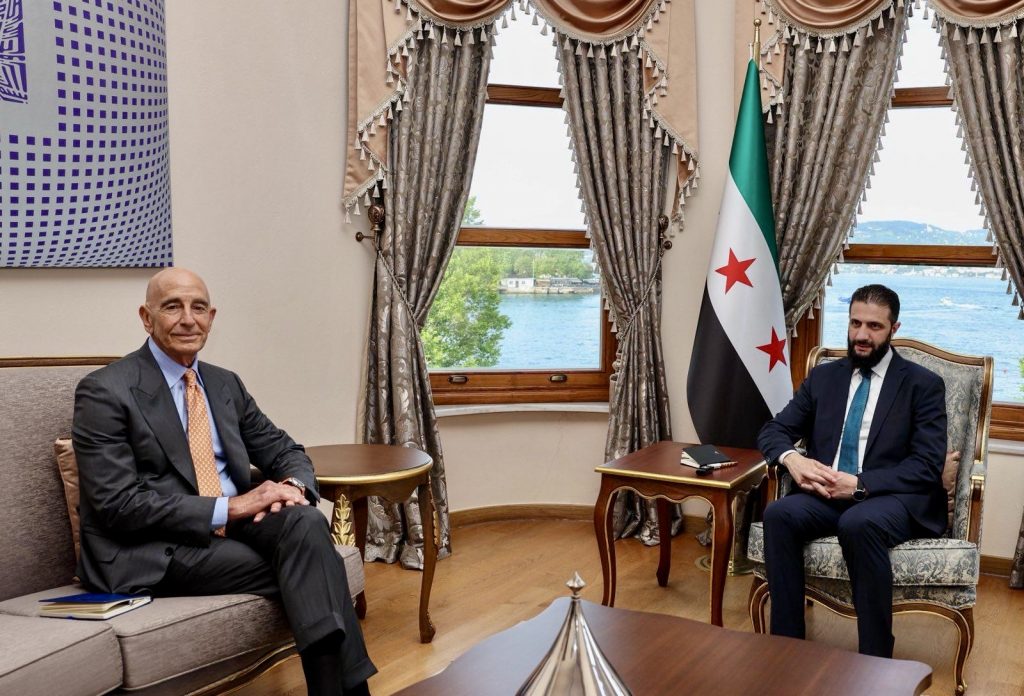On Saturday, President Trump’s special envoy met with Ahmed al-Sharaa, the former al-Qaeda leader who is now Syria’s de facto president, after the State Department announced it was lifting some sanctions on Syria.
Tom Barrack, the US ambassador to Turkey who now also serves as a Syria envoy, met with Sharaa, formerly known as Abu Mohammed al-Jolani, in Istanbul. “Syria is now OPEN FOR BUSINESS!” Barrack wrote on X after the meeting.
A day before the meeting, Secretary of State Marco Rubio said the US would lift measures imposed under the Caesar Act, crushing sanctions that were designed to prevent Syria’s reconstruction, for at least 180 days.

“These waivers will facilitate the provision of electricity, energy, water, and sanitation, and enable a more effective humanitarian response across Syria,” Rubio said.
Rubio also said the US was issuing a license to authorize transactions by US citizens that were previously banned by US sanctions on Syria. He said the license will “allow for new investment and private sector activity consistent with the President’s America First strategy.”
The steps came after President Trump announced his intention to lift sanctions on Syria when he visited the region earlier this month. He also met with Sharaa and praised the former al-Qaeda leader as “a young, attractive guy” with a “strong past.”
The US has several demands for Syria, including pursuing normalized relations with Israel, cracking down on Palestinian resistance groups, and launching operations against ISIS.
Barracks said that during the meeting, he “commended President al-Sharaa on taking meaningful steps towards enacting President Trump’s points on foreign terrorist fighters, counter-ISIS measures, relations with Israel, and camps and detention centers in NE Syria.”
On Sunday, Barrack said that the Syrian government had agreed to help locate missing US citizens in the country, and he posted a report from The New York Times that said Israeli airstrikes on Syria have subsided since Trump met with Sharaa on May 14.
Barrack also criticized the history of Western interference in the region, saying the future was up to the people of Syria, although the US did help put Sharaa and his jihadist group, Hayat Tahrir al-Sham, in power in Damascus.
“A century ago, the West imposed maps, mandates, penciled borders, and foreign rule. Sykes-Picot divided Syria and the broader region for imperial gain—not peace. That mistake cost generations. We will not make it again,” Barracks wrote on X. “The era of Western interference is over. The future belongs to regional solutions, but partnerships, and a diplomacy grounded in respect.”


